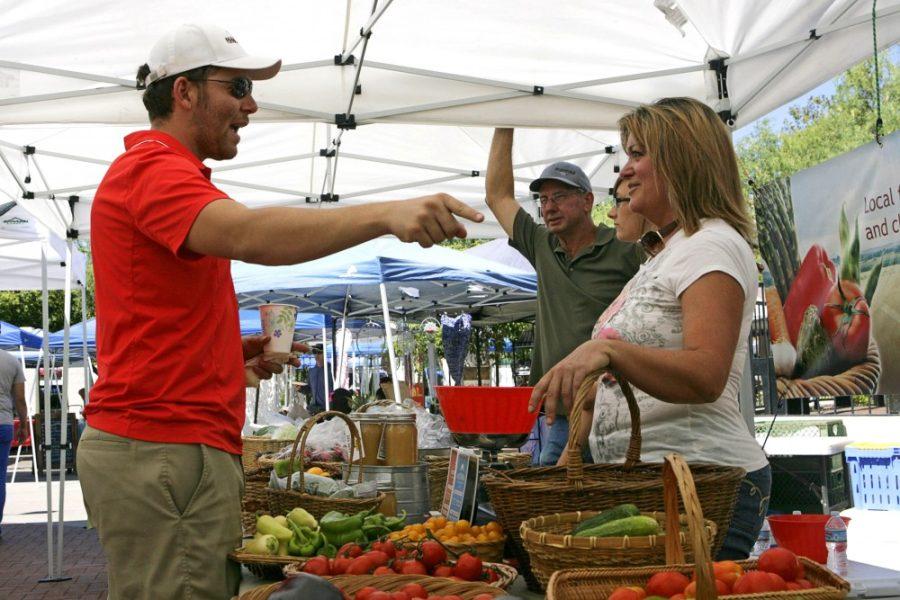Student life can be extremely demanding, and picking up a pizza at your favorite local spot can be an easy, quick fix to weeknight hunger.
Unfortunately, though, eating take-out every night seriously hurts your health and, not to mention, your wallet.
More often than not, produce at the grocery store has traveled across seas and sat in storage for more time than we’d like to imagine.
Luckily, there’s an awesome option for those interested in eating healthier and more sustainably.
Food in Root is a local company that began with intentions of supporting the Tucson community in buying locally and eating sustainably.
The organization tries to make it easier to know as much about the produce you’re buying as possible.
Food in Root supports multiple farmer’s markets around Tucson, from the market at St. Philips Plaza to the one on the UA Mall every Wednesday.
RELATED: Two Eller grads make Tucson’s local foodie scene great again with FoodInRoot
There are a variety of vendors who participate in Food in Root farmer’s market who sell everything from artwork to kettle corn to fresh tamales.
One vendor, Ed Dubis, sells produce from farms all over, including Maggie’s Farm Lane Aquaponics and UA’s own farm. His company, Earth Made, sells his produce at the St. Philip’s Farmers Market every Saturday and Sunday.
“It’s always good to know where your food comes from [because] more money stays local,” Dubis said. “We love our tomatoes. They come from the university, they’re some wonderful types.”
One of the advantages of buying produce at a farmers market is the cost tends to be lower than that available at many grocery stores.
Cindy Williams, another vendor at the St. Philips Plaza Farmer’s Market, has sold fresh, affordable produce through her company Cindy Gardens for about a year. The company represents many farms from all over Southern Arizona.
Williams’ prices are also cheaper than you might see in a grocery store—a bunch of her asparagus costs $3, her celery is $2 and her apples are $2 per pound.
Williams said she believes there are many advantages to eating locally.
“The biggest benefit is that where my table is, where my booth is, it’s close to the growing point,” Williams said. “The benefit of eating locally is that the nutrient content is so much higher. It hasn’t sat in a warehouse for two weeks; it’s coming directly from the farm.”
Another benefit of local produce, according to Williams, is that everything for sale is currently in season here. Nothing has been shipped from some other ecosystem across the globe.
RELATED: Dusk Music Festival redefines festival food
In autumn and early winter, everything that could be served at Thanksgiving dinner is in season.
This includes sweet potatoes, squash, celery, onions, cauliflowers, broccoli, potatoes and all kinds of greens.
With so many positive results like higher nutrient content and seasonable eating from buying and eating locally and sustainably, Williams said it’s surprising that more students don’t take advantage of the plethora of Tucson farmers markets.
“It’s hard to get students to come and buy produce from these markets,” Williams said. “Students will go to [a market] and get ready-made food, like pretzels or something. They’re not likely to go and get a bag of kale.”
Food in Root hosts a weekly farmers market on the Mall every Wednesday morning. Most students don’t do their grocery shopping there, so most vendors have stopped selling produce.
So maybe consider supporting the local economy by visiting one of the many farmer’s markets in Tucson—Thanksgiving will be that much more delicious with fresh, local cranberries and sweet potatoes as side dishes this year.
Follow Brianna Darling on Twitter.









